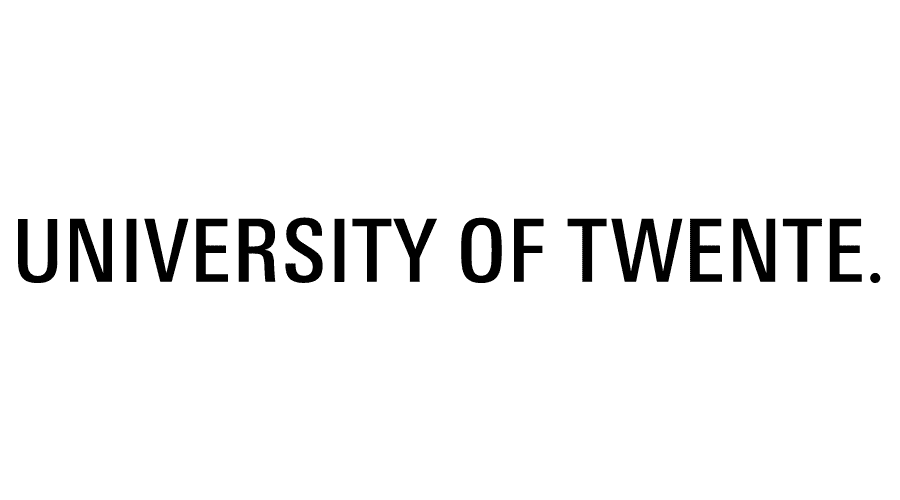Snabbfakta
-
- Enschede
- Heltid
- Rekrytering
Kategorier:
- Kemiteknik
Titlar:
- Postdoktor
Ansök senast: 2024-12-15
Post-doctoral position on Local Bubble Behaviour in Alkaline Electrolysis
Job description
Within the Soft matter, Fluidics, and Interfaces (SFI) group and closely working with the Physics of Fluids (PoF) group, we have a vacancy for a post-doctoral fellow relating to numerical simulations of electrolysis at a local bubble level.
Hydrogen is a recognized crucial component, required for many industrial processes such as fertilizer production. However, the main production route still relies on fossil sources. The sustainable electrochemical production of hydrogen, i.e. green hydrogen, needs to economically compete with the conventional production methods. To this end, you are part of a team of PhDs and post-docs exploring the optimization of hydrogen production through alkaline electrolysis.
The simulations are intended to provide local information on bubble phenomena in confined geometries at a pore level, which is not easily accessible by experimental methods (e.g. current distribution in the electrolyte). Close interaction with experimentalists working on single-bubble evolution is intended and will be crucial to the success of these simulations as locations and departure sizes are required inputs to the simulations.
We plan to solve the (Poisson) Nernst-Planck (NP) and Navier-Stokes (NS) equations, along with energy balances to account for localized Joule heating and considering the impact of gas evolution/crossover. This can be coupled to the evolution of the gas phase, for example via immersed boundary methods.
In this manner, the local charge distribution (concentration profiles of ionic species), potential profile and fluid flow can be estimated and compared with experimental results in order to deepen understanding of the factors governing transport at high applied currents in electrolysers and also compared to lab-scale stack results (experimental and simulation) in order to assess the suitability of macroscopic averaging. The (P)NP-NS framework allows for finite ion-size effects at high voltages, determining local reaction rates via the Butler-Volmer-Frumkin equations and inclusion of both gas evolution and gas crossover from experimental inputs.
The knowledge obtained from simulations and experiments on the local behaviour of single-bubbles will be used to improve empirical relationships (e.g. bubble departure size) found in larger scale stack modelling carried out by research partners, which means close collaboration with external partners is also a key part of this position.
Within this project, you will work closely together in a consortium of partners from the University of Twente, the Technical University of Eindhoven, the Technical University of Dresden, and the Helmholtz Zentrum Dresden-Rossendorf, as well as industrial partners, VDL, SPGPrints, Vitesco, and industry De Nora. This consortium provides an excellent network to excellent academic groups and industrial innovators and will provide a dynamic and stimulating environment for your continuing development as a research scientist and academic trajectory. Furthermore, you may actively contribute to the teaching program, e.g. by supervising BSc and MSc assignments or by acting as a teaching assistant in courses taught by department staff and engaging with the Dutch research community via organizations such as the J.M. Burgerscentrum for Fluid Mechanics.
Requirements
- You are an enthusiastic and highly motivated researcher with affinity for numerical simulations that connect to experimental observations;
- You have acquired, or will shortly acquire, a doctoral degree in the field of (electro)chemical engineering, electrochemistry, physical chemistry, or (fluid) physics;
- You have affinity for innovations towards sustainable solutions;
- Modelling and simulation expertise involving transport phenomena and multiphase systems is essential;
- Preferably you have experience with simulation of electrochemical systems and connecting simulations to experimental findings;
- You have a creative mindset, excellent analytical and communication skills and a demonstrated ability to work both independently and in collaboratively in a team environment;
- You have a good team spirit and like to work in an interdisciplinary and internationally oriented environment;
- You are proficient in English per the University guidelines. A written test and scientific presentation in English can be part of the interview procedure.
Conditions of employment
- A full-time position for two years;
- Your salary and associated conditions are in accordance with the collective labour agreement for Dutch universities (CAO-NU);
- You will receive a gross monthly salary ranging from € 3.858,- to € 5.278,- (salary scale 10) based on education and work experience;
- There are excellent benefits including a holiday allowance of 8% of the gross annual salary, an end-of-year bonus of 8.3%, and a solid pension scheme;
- A minimum of 232 leave hours in case of full-time employment based on a formal workweek of 38 hours. A full-time employment in practice means 40 hours a week, therefore resulting in 96 extra leave hours on an annual basis;
- Free access to sports facilities on campus;
- A family-friendly institution that offers parental leave (both paid and unpaid).
Department
The Soft Matter, Fluidics, and Interfaces (SFI) group is part of the Department of Membrane Science and Technology (MST) , often referred to as Twente Membranes. Research in SFI focuses on transport and interfacial phenomena in processes such as catalysis, materials synthesis and separation technology and carries out studies that typically combine experimental observations with simulation/model development. MST consists of several research chairs focused on the development of new membrane materials and modules, membrane characterization, transport phenomena near and through membrane surfaces and the development of membrane processes and applications. MST has a history in membranes stretching back more than 50 years, and is internationally recognized as a leading department in membrane science and technology. The department boasts an impressive track record of over 250 PhD graduates, over 1000 peer reviewed scientific publications and over 40 granted patents, as well as numerous spin-off companies.
Additional information
Are you interested in this position? Please send your application via the 'Apply now' button below before 15-12-2024, and include:
- A cover letter (maximum 2 pages A4), emphasizing your specific interest, qualifications, motivations to apply for this position;
- A Curriculum Vitae, including the title of your doctoral dissertation and graduation date (or planned date), educational and research background, a list of publications and at least two references;
- An IELTS-test, Internet TOEFL test (TOEFL-iBT), or a Cambridge CAE-C (CPE). Applicants with a non-Dutch qualification and who have not had secondary and tertiary education in English can only be admitted with an IELTS-test showing a total band score of at least 6.5, internet. TOEFL test (TOEFL-iBT) showing a score of at least 90, or a Cambridge CAE-C (CPE).
For more information regarding this position, you are welcome to contact (Rob Lammertink, r.g.h.lammertink@utwente.nl or Jeff Wood, j.a.wood@utwente.nl)

